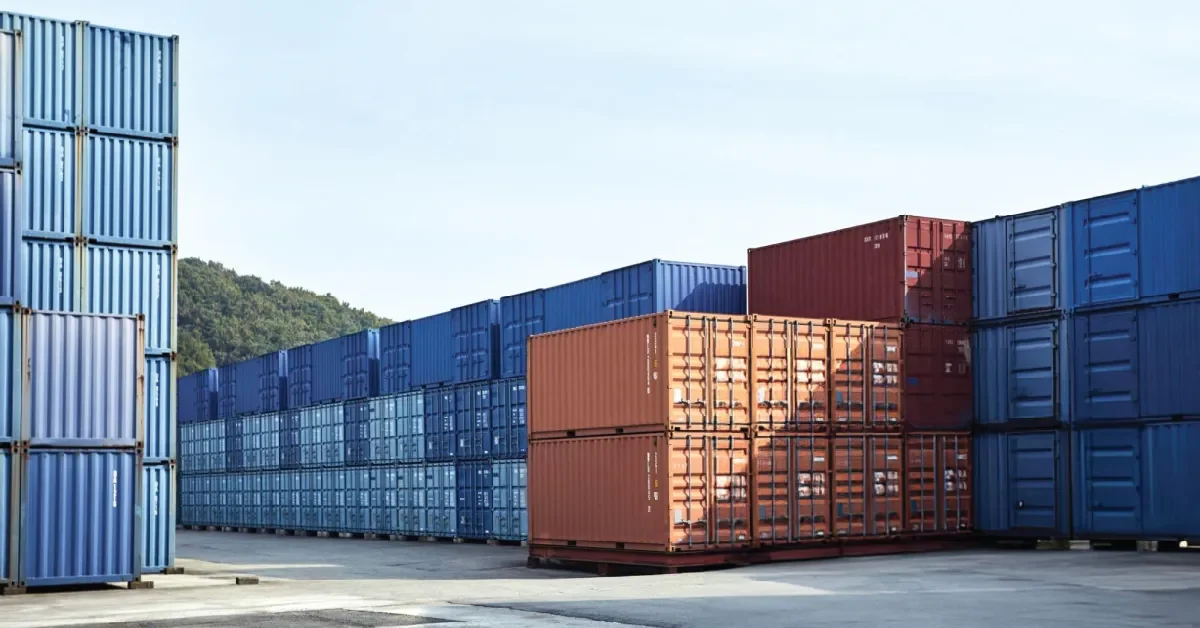
Flexible warehousing in the form of portable storage containers in Canada has become a new option available and hence no longer must businesses rely on traditional warehousing for storage. Over the past few years, Nova Scotia has experienced a quiet but significant change in the way business is done, with a focus on how businesses store inventory, equipment and working space. From busy Halifax to the isolated coastal fishing villages, small businesses throughout Nova Scotia are increasingly relying on storage containers for an assortment of commercial applications. These steel behemoths, once only found at shipping terminals have become widespread equipment in everything from construction and retailing to farming and seasonal festival planning. In this article, we’ll explore the rise of storage containers in commercial use, the unique advantages they bring to Nova Scotia’s diverse economy, the industries embracing this trend and the future of portable warehousing in the province.
Here’s a closer examination of how this storage revolution is unfolding.
Portable storage containers, also known as shipping containers or cargo containers, have long been used in global logistics. Originally designed for transporting goods across oceans, these steel structures are weather-resistant, secure and incredibly versatile. As time passed, businesses and entrepreneurs saw that these same traits made them perfect for storing on land. In Nova Scotia, where weather is often unpredictable, land is a mix of rural and urban and seasonal shifts in demand are prevalent, this has resulted in a boom of commercial use. Based on statistics from Canadian logistics companies and local storage rental companies, container warehousing has increased steadily across the Atlantic provinces over the decade, with Nova Scotia taking the lead in commercial demand.
Storage containers are no longer mere boxes in a field. They’ve become dynamic assets in a range of business models throughout Nova Scotia:
A 20-foot container is used as a storage and administrative office by a mid-sized contractor that does work on municipal housing projects. With solar lighting, shelving and internet access, these containers travel from project to project with the crew, avoiding warehousing off-site costs.
An artist collective converted a 40-foot container into a summer retail and exhibition space. Painted in bright colors and situated on the waterfront, it attracts pedestrians passing by tourists while providing local artists with an inexpensive retail outlet for summer months.
A small-scale lobster processing plant depends on refrigerated containers to store product prior to shipping. The containers ensure food safety requirements and offer an immediate, scalable solution to storage during times of high catch.
Upcycling occurs through reusing shipping containers. Instead of allowing retired units to rust in shipyards, companies repurpose them, reducing waste. Further, conversions of containers frequently employ sustainable materials, solar panels and green insulation. In rural Nova Scotia, off-grid solar-powered container storage units and offices are increasingly becoming mainstream, cutting carbon footprints and costs of fuel and electricity.
Prior to setting a container on business property, companies need to consult with municipalities regarding zoning and bylaws. Most jurisdictions have allowance for temporary or seasonal placement, but others may need permits or prohibit the use of containers within urban settings.
Certain important considerations:
Fortunately, numerous storage container companies in Nova Scotia provide guidance on these matters, such as delivery, compliance assistance and removal services.
In choosing a portable storage product, businesses need to look at:
Local providers typically provide more insight into weatherproofing, logistics and regional compliance.
Portable warehousing as a concept is not a passing trend; it represents a sustainable shift to a more intelligent, lean, agile way of conducting business. In a province like Nova Scotia, where geography, climate and seasonal activities set the stage for operational decision-making, the need for flexible, affordable solutions has never been greater. Sea Can Kings fulfills this need with storage containers, offering security, convenience, expandability and an astonishing level of customization. As industries continue to adapt and demand for sustainable infrastructure increases, we can only speculate on what new and creative applications are yet to come for storage containers. From relocatable production lines, to energy-conscious remote office spaces, Sea Can Kings is not only helping businesses stay afloat, they are establishing a prosperous future. Whether you are a small business looking for reduced overhead, a contractor interested in efficiency on-site or an entrepreneur assessing the potential for mobile retail, portable warehousing with Sea Can Kings is a viable solution. Nova Scotia is setting the example and the future is solid, secure and stackable.
 -
-